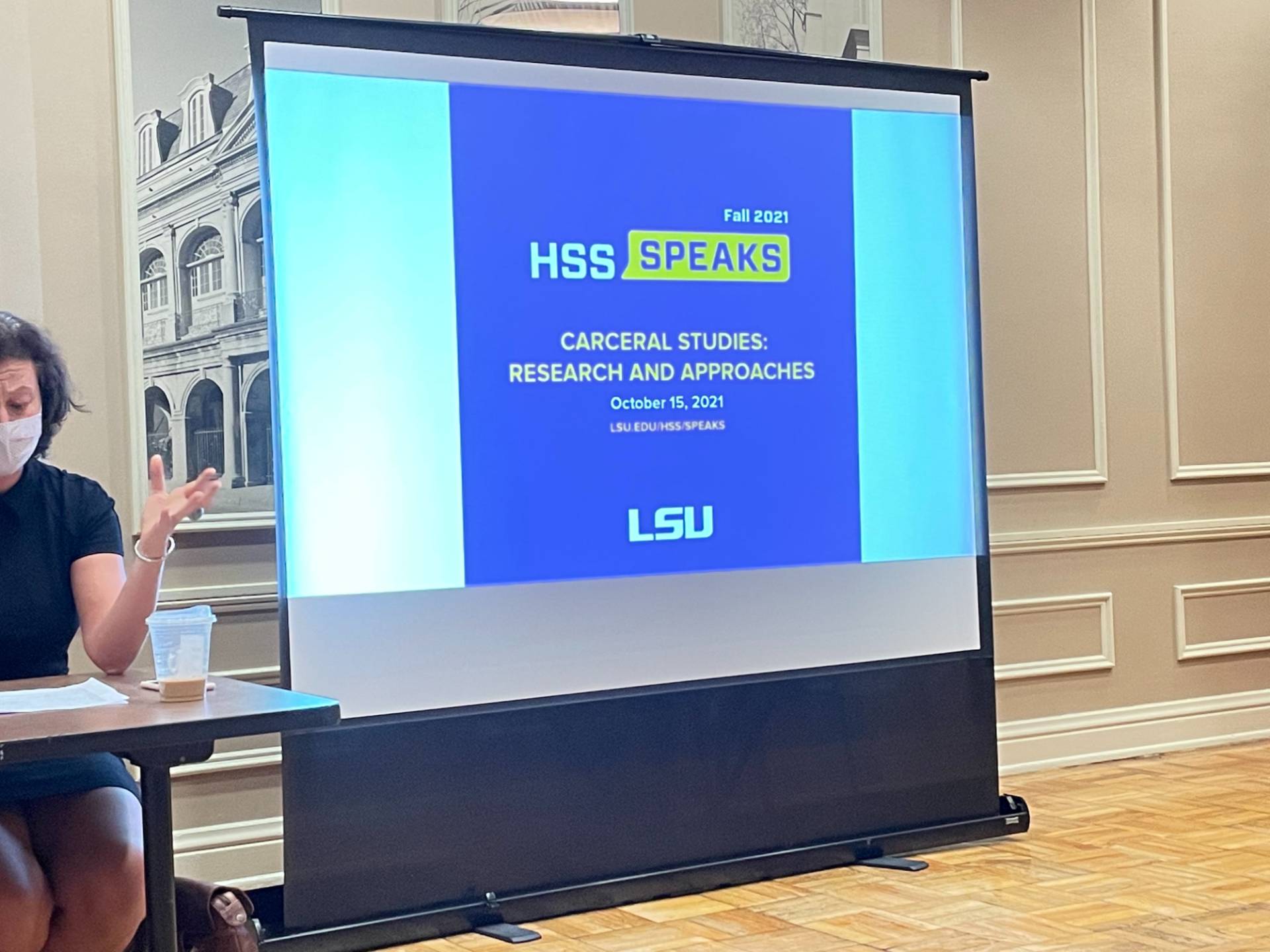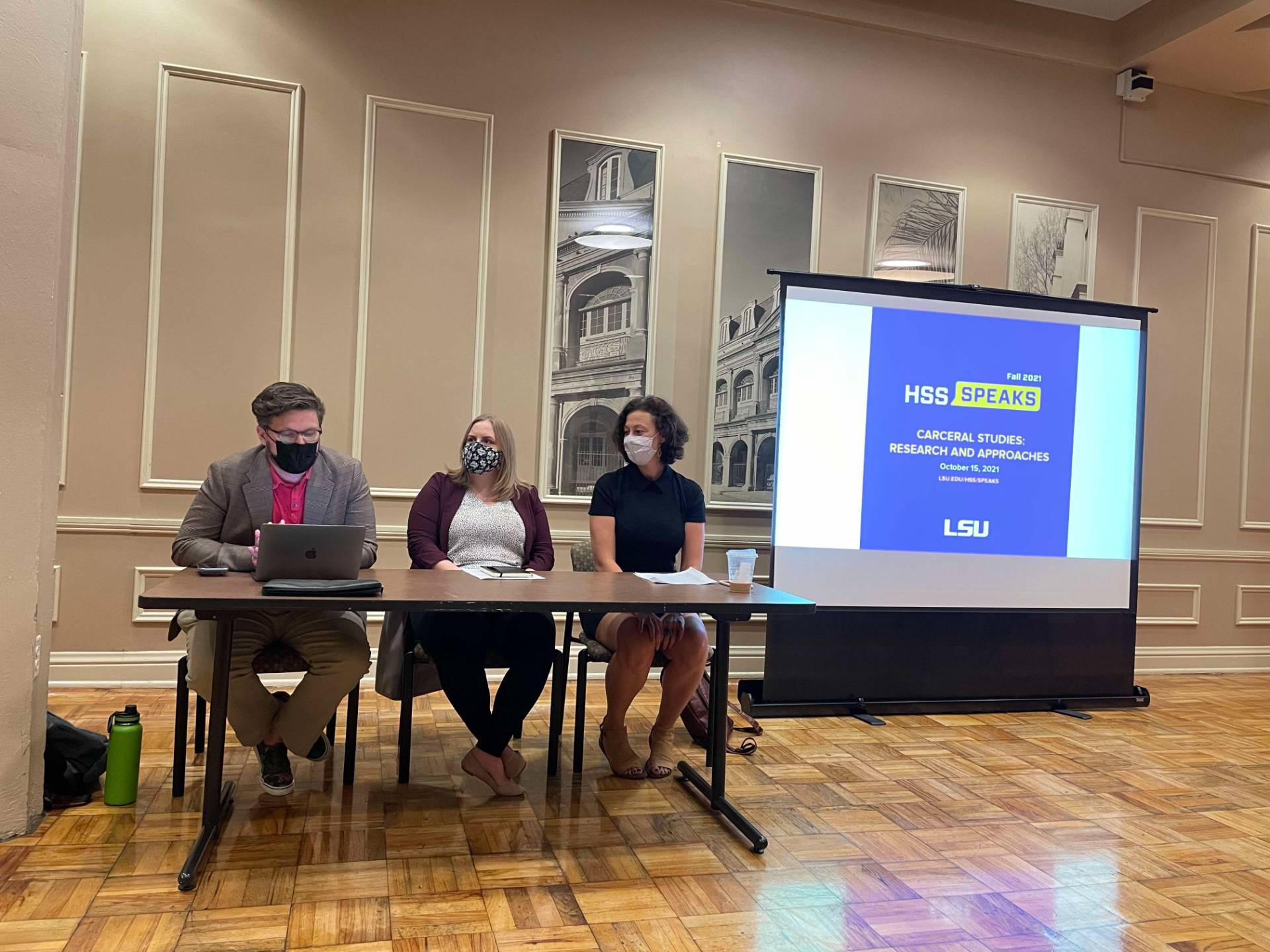Carceral Studies Group
The LSU Carceral Studies Group is a group of students, scholars, artists, practitioners, and activists who study, interrogate, and challenge the harms of the carceral system, policing, criminalization, and punishment as they exist in the United States today.
Current Members
Dr. John Bardes, Department of History
Dr. Hannah Bacon, Department of Philosophy
Dr. Sarah Becker, Department of African & African-American Studies and Women's, Gender & Sexuality Studies
Dr. Debbie Goldgaber, Department of Philosophy and Religious Studies and Women's, Gender & Sexuality Studies
Dr. Catherine Jacquet, Department of History and Women's, Gender, & Sexuality Studies
Dr. Ashley Mack, Department of Communication Studies
Dr. Lori Martin, Department of African & African-American Studies
Dr. Bryan McCann, Department of Communication Studies
Past Events
HSS Speaks @ the Student Union. Friday, October 15, 2021
Carceral Studies Group members Dr. Debbie Goldgaber, Dr. Anna Gunderson, and Dr. Bryan McCann presented their research at the inaugural HSS Speaks program

Carceral Studies: Research and Approaches

More about us and why we gathered
The United States incarcerates more people than any other country in the world. With only 5% of the world’s population, we hold 25% of the world’s incarcerated. Louisiana has the highest rate of incarceration per capita in the US, making our state the incarceration capital of the world.
Within the United States carceral system, Louisiana’s prison system has been singled out by scholars, activists, and human rights organizations for gross human rights violations, from indefinite solitary confinement to sexual violence and deaths in detention. After a slight dip in 2018, Louisiana’s incarcerated population has dramatically increased following an explosion in the use of private prison facilities in the state as sites of detention for immigrants and refugees.
The Carceral Studies Group at Louisiana State University gathers a transdisciplinary group of students, scholars, artists, practitioners, and community members to catalyze inquiry into the social effects, harms, and genealogies of the carceral state. We define carcerality as a logic of punishment and banishment in response to harm, rather than reparation and transformation. We ask foundational questions including:
- How do regimes of racism, and white supremacy, and anti-Blackness intersect, inform, and sustain the carceral state?
- How does carcerality circulate and manifest within institutions?
- What are the genealogies of carcerality at LSU and other higher education institutions?
- How does centering carcerality enable unique insights into existing forms of inequality?
- What is the relationship between carcerality and ableism?
- How do collective investments in retribution render marginalized communities more vulnerable to the carceral state?
- How does an attention to carcerality inform analyses of labor and labor rights struggles?
- How does carcerality shape understandings of social space and time?
- How do people move within, among, and between carceral institutions?
- How do carceral logics limit or shape abilities to imagine what constitutes justice? How can we foster creative imagining about an abolitionist or reparative future?
The Carceral Studies Group advocates for minimizing the reach of the carceral state. We aim to support social transformation and social justice. Currently, we are engaged in the following efforts related to that goal:
- Supporting professionals who teach about the carceral state
- Supporting research related to carcerality
- Supporting the work of community-based organizations engaged in social change and/or resistance to regimes of incarceration
- Representing and advocating for and with those directly affected by the carceral state